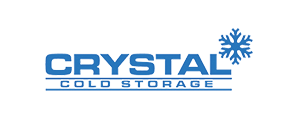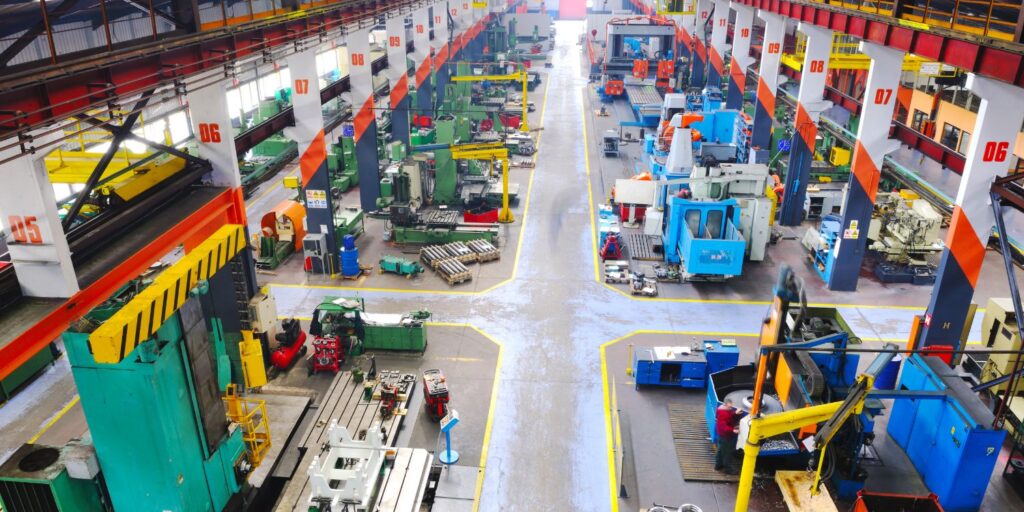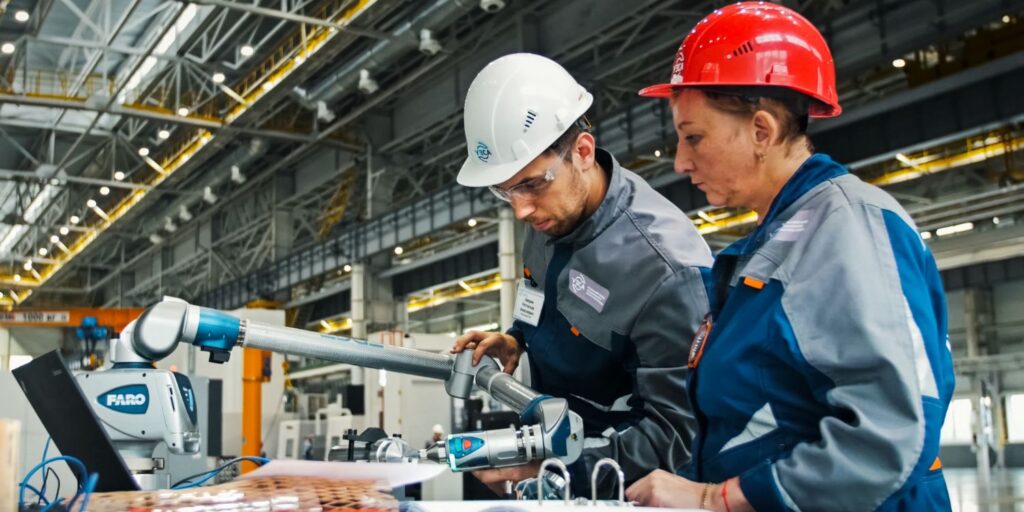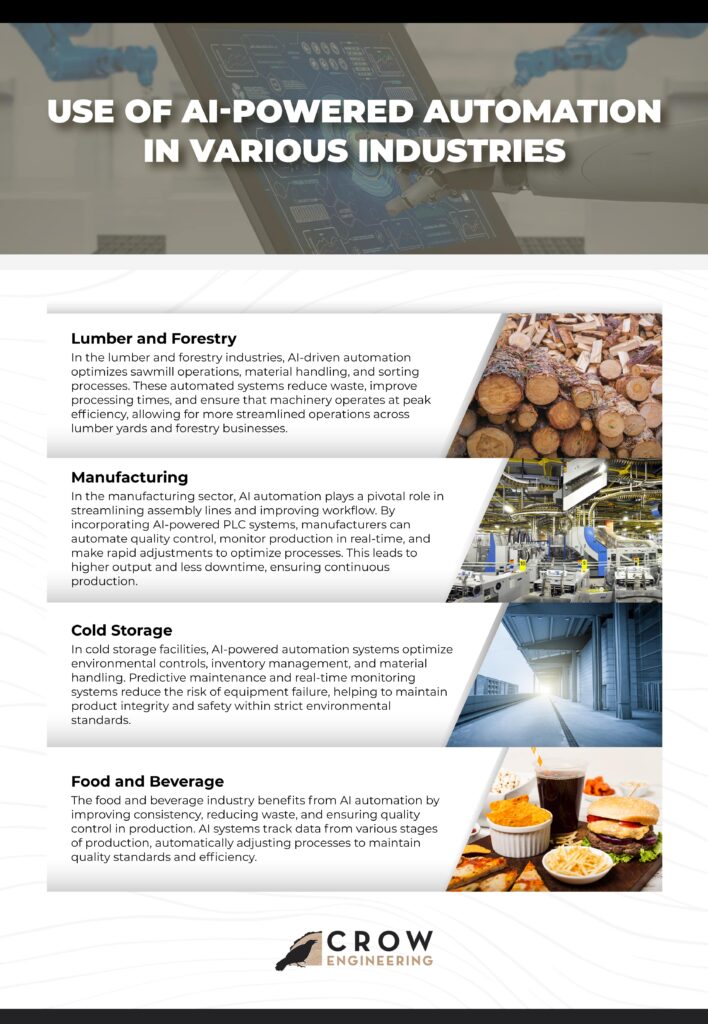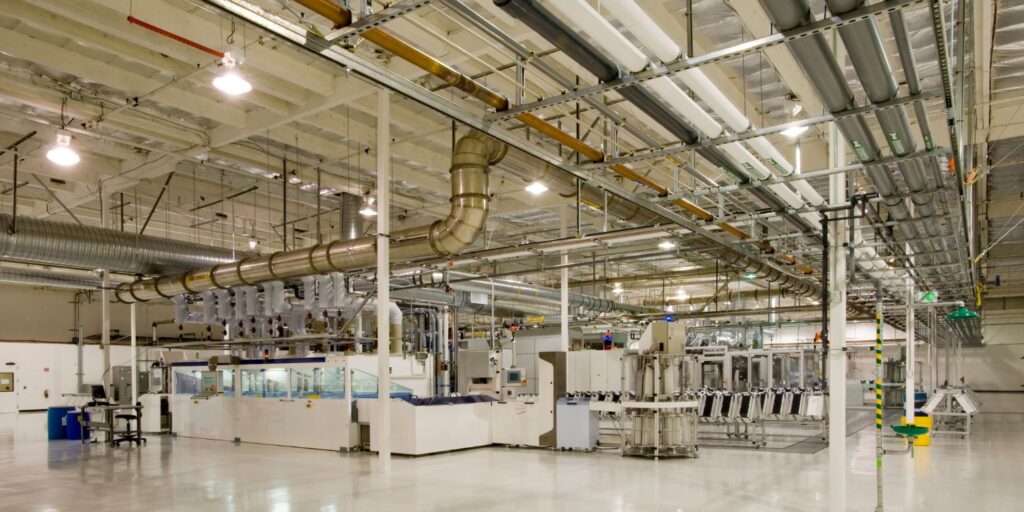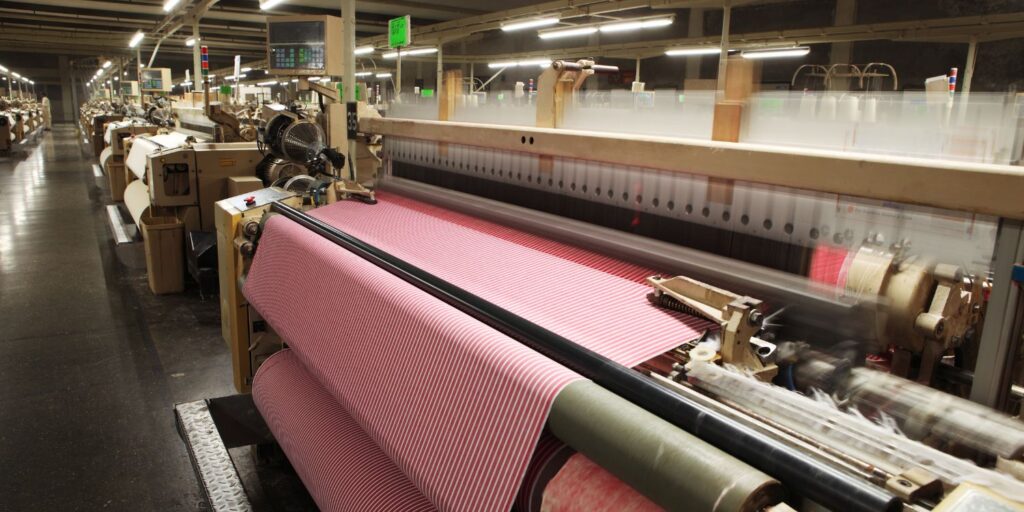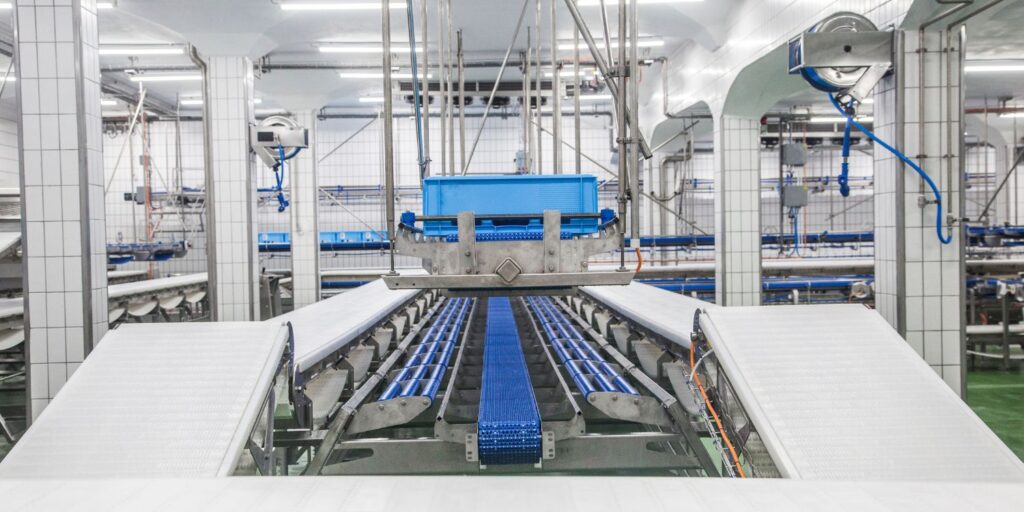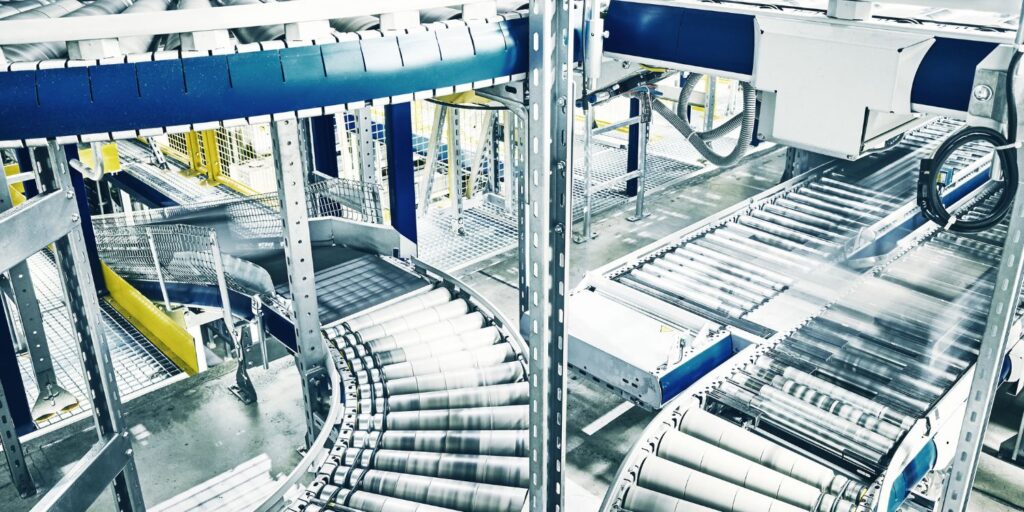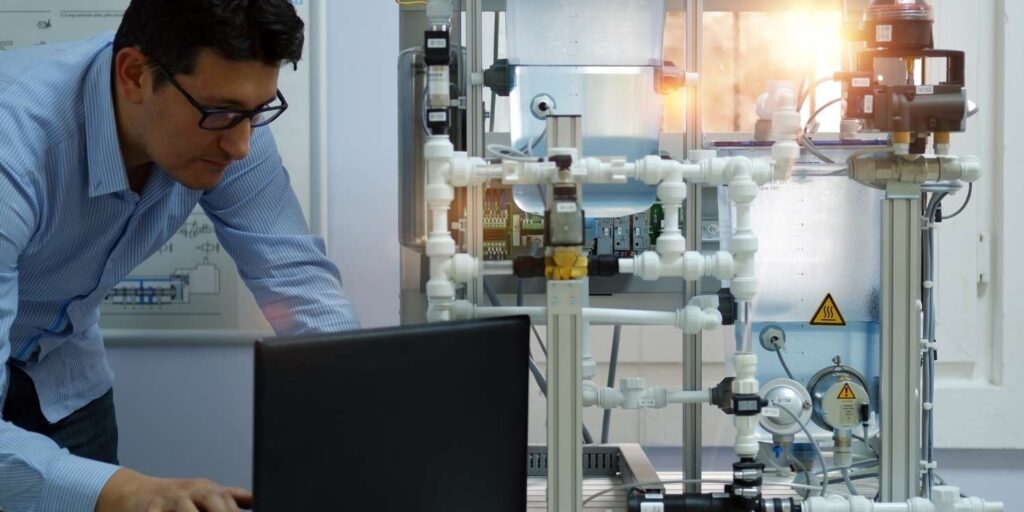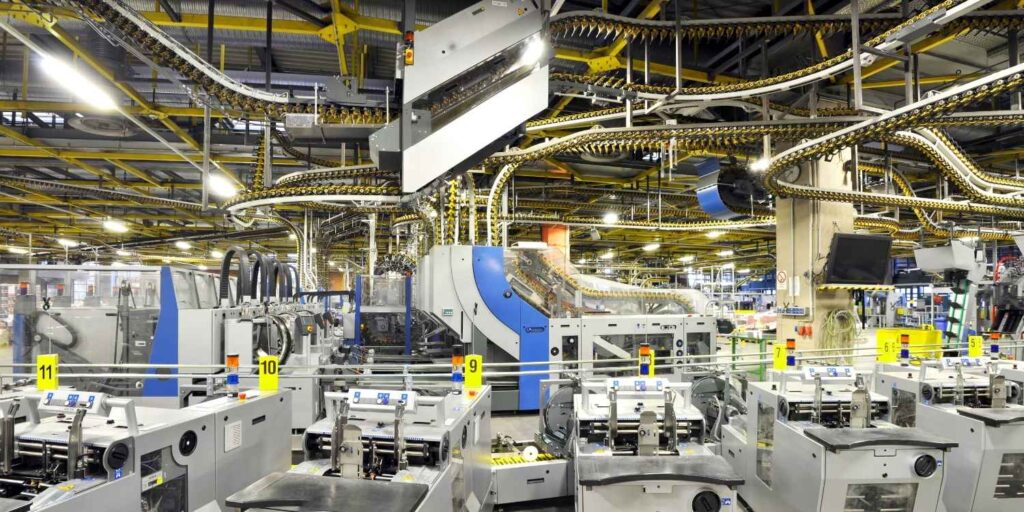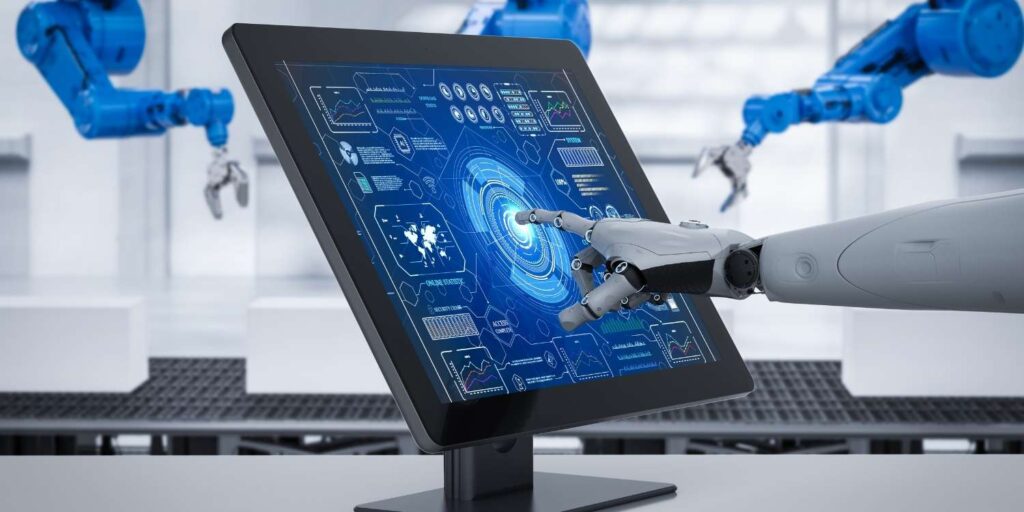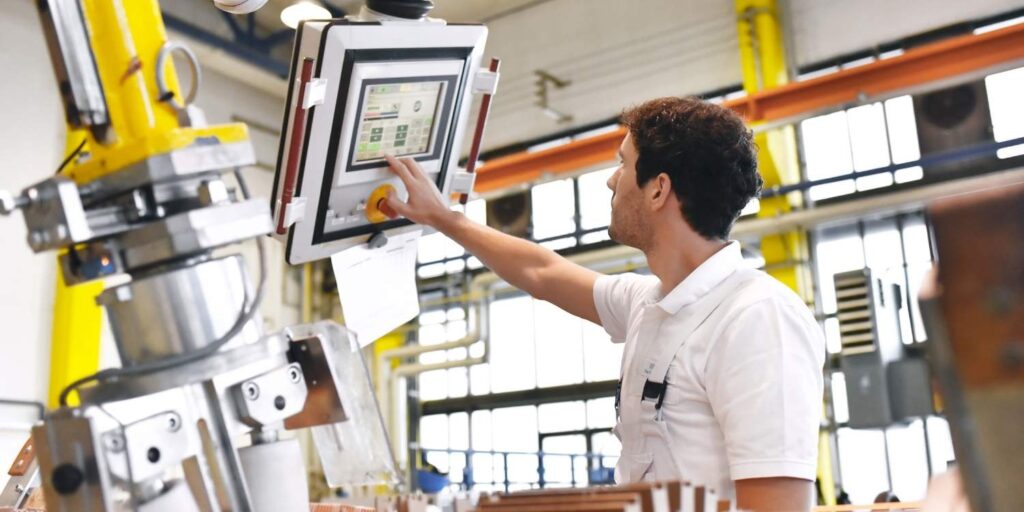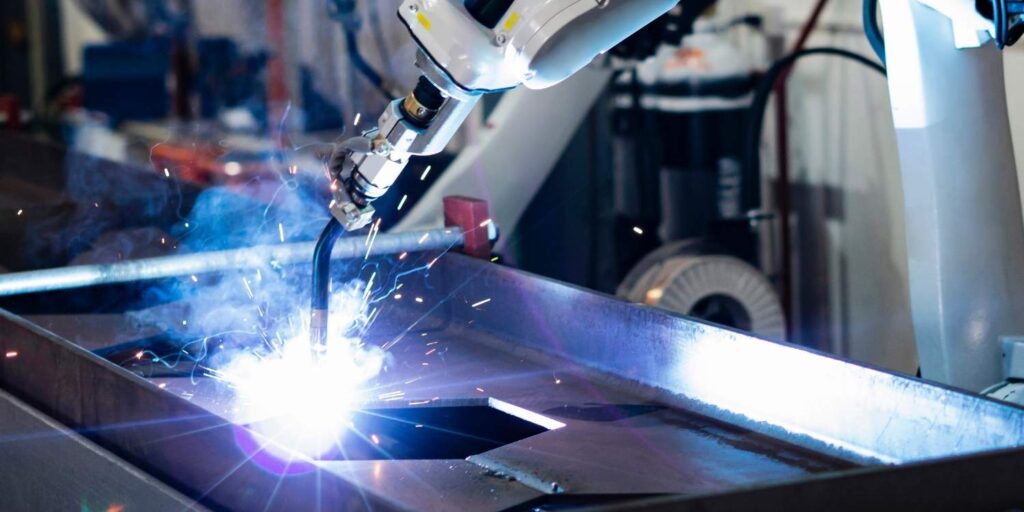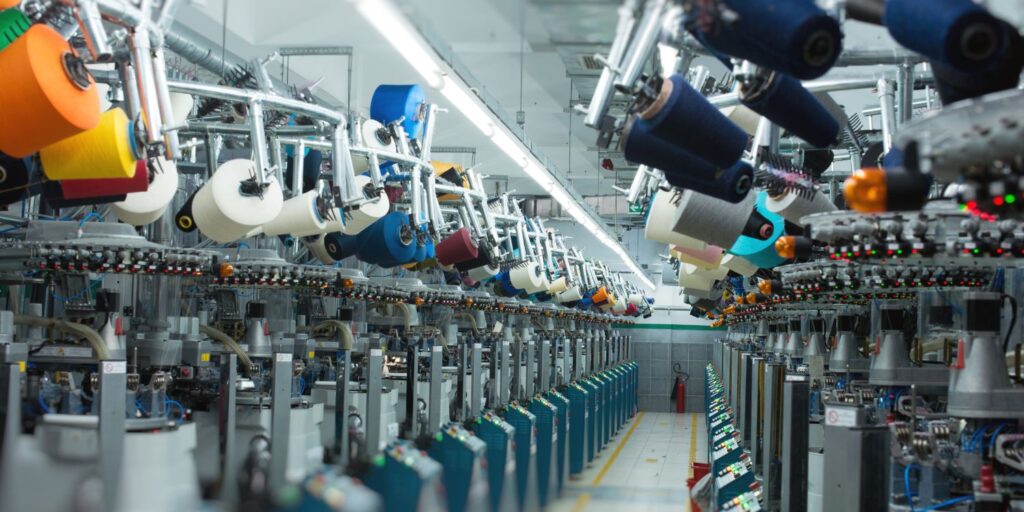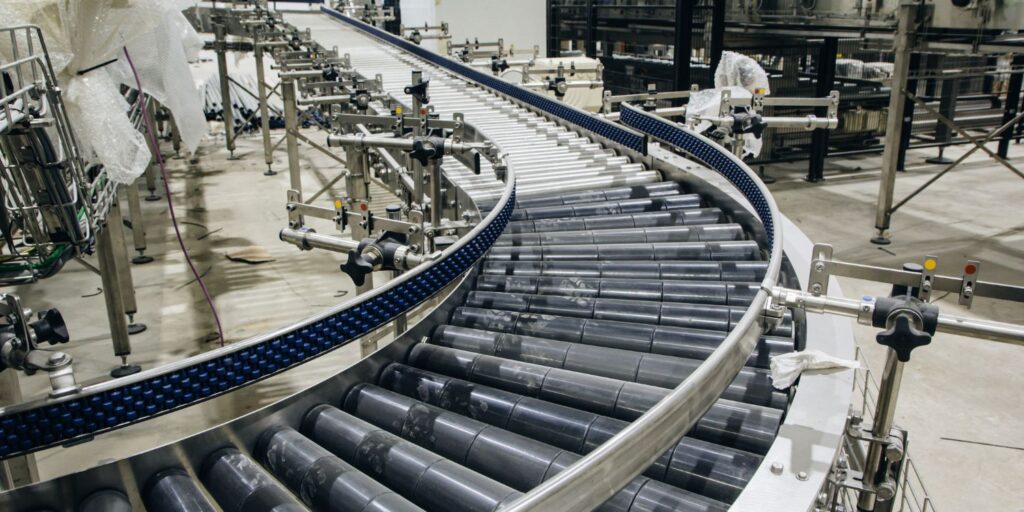Allen-Bradley PLC stands out as a pioneer and leader in the realm of industrial automation.
Technology Transforming Automation
Owned by Rockwell Automation, Allen-Bradley is renowned for its extensive range of factory automation equipment, including Programmable Logic Controllers (PLCs), human-machine interfaces (HMIs), sensors, safety components, and more. These technologies are integral to improving safety, increasing quality, and optimizing plant performance, demonstrating the transformative power of smart devices and machines in automation.
Allen Bradley: A Legacy of Innovation
Founded in 1903, Allen-Bradley has a long history of innovation that predates modern computer systems. The company’s early work in electronics laid the foundation for its leadership in digital automation. In 1970, Allen-Bradley introduced one of the first programmable controllers, the 1774 PLC, coining the term “PLC” and setting a new standard in industrial control.
The introduction of the 1774 PLC, also known as PLC-1, marked a significant milestone. This was soon followed by the development of the Data Highway, one of the first computer networks designed exclusively for digital control systems. The evolution continued with the PLC-2, PLC-3, and PLC-5 series, many of which are still in operation today. These advancements underscored Allen-Bradley’s commitment to enhancing industrial automation.
Key Hardware Platforms
SLC 500 Series
In 1990, the SLC 500 series was introduced, providing a more compact and affordable option compared to its predecessor, the PLC-5. The SLC 5/01 model offered memory ranges from 1k to 4k and could control up to 30 I/O slots. Subsequent models like the SLC 5/02 and 5/03 introduced features such as Run Mode and Online Programming, with the SLC 5/04 enhancing data highway capabilities with DH+.
ControlLogix PLCs
The ControlLogix platform, introduced in 1999, represented a significant leap forward in PLC technology. Modular and rack-based, these controllers included a processor, power supply, and various I/O and communication modules. The initial model, the 1756-L1, set the stage for numerous iterations that offered faster scan times and higher memory capacities. ControlLogix PLCs eventually superseded the SLC and PLC-5 families, becoming the standard for many industrial applications.
CompactLogix PLCs
Responding to market demands for cost-effective controllers, the CompactLogix series was launched in 2008. This series includes two variants: modular, chassis-free controllers like the L30ER to L35X models, and all-in-one solutions such as the L23, L2XER, and L1XER models. These controllers offered embedded digital and analog I/O connections, making them suitable for a wide range of applications.
MicroLogix PLCs
The MicroLogix series, introduced in 1994, provided a compact and cost-efficient option for small applications. These controllers came with a built-in processor, power supply, and I/O. Although many models, from the 1000 to the 1500, are now discontinued, they remain widely used due to their reliability and simplicity.
Allen Bradley Integration and Information Solutions
Allen-Bradley’s hardware platforms are designed to integrate control and information across the enterprise, maximizing productivity. These solutions are built to withstand demanding industrial environments, providing robust and reliable performance. By integrating control systems with information systems, Allen-Bradley enables real-time data collection and analysis, facilitating informed decision-making and process optimization.
Enhancing Plant Performance
Smart devices and machines from Allen-Bradley deliver measurable results by enhancing safety, increasing quality, and optimizing plant performance. PLCs, HMIs, and other automation components work together to create a cohesive control environment that improves operational efficiency and reduces downtime. This integration is crucial for modern manufacturing, where precision and reliability are paramount.
The Future of Automation
As technology continues to evolve, Allen-Bradley remains at the forefront of innovation. The incorporation of advanced technologies such as artificial intelligence (AI) and machine learning (ML) into control systems promises to further enhance their capabilities. These technologies can analyze vast amounts of data to identify patterns, predict process behavior, and optimize control strategies, leading to even greater efficiency and effectiveness in industrial automation.
Control System and PLC Control System Solutions
Allen-Bradley has been a cornerstone of the industrial engineering community for over a century. Its control system hardware and software, developed in collaboration with Rockwell Automation, continue to be integral to nearly every industry. From the early days of the PLC-1 to the advanced ControlLogix and CompactLogix platforms, Allen-Bradley’s innovations have consistently set the standard for industrial automation.
For businesses seeking to enhance their control systems, Allen-Bradley’s legacy of innovation and commitment to quality make Allen Bradley PLCs a wise choice. To learn more about how modern PLCs and integrated control solutions can benefit your operations, explore the comprehensive offerings from Crow Engineering’s control solutions and PLC control systems. Contact us today to discover how we can support your automation needs.
Who are we?
Crow Engineering is a multi-discipline consulting engineering firm serving mechanical, structural, and civil engineering needs for a variety of industries.
Engineering Services
the crow connection
Recent News
The Crow Connection delivers high-level insights on engineering, automation, and process optimization, helping you drive efficiency and innovation. Covering topics like AI-powered automation, manufacturing strategies, and industrial process improvements, it’s a must-read for leaders seeking a competitive edge.





